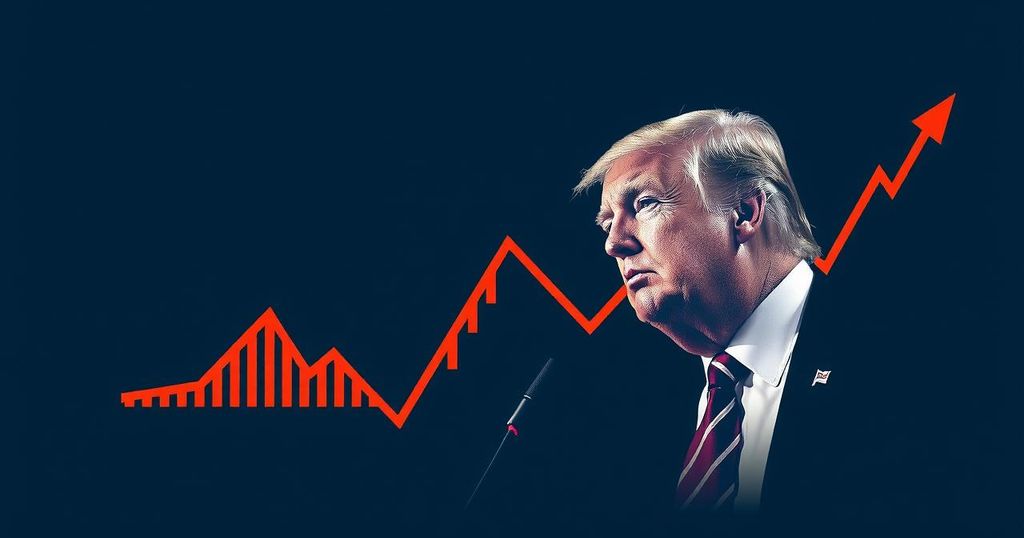Trump’s Reelection: Impacts on Global Economy and Trade Policies

The reelection of Donald Trump triggers uncertainty in the global economy due to proposed tariffs that may reach 60 percent on Chinese imports and impact GDP growth. Estimates indicate a potential reduction in global growth by 1 percent by 2026, with emerging economies particularly affected. Concerns are heightened over the implications for the U.S. dollar’s strength and the Federal Reserve’s independence. Trump’s unpredictable policymaking raises further questions about potential economic repercussions.
The reelection of Donald Trump as President of the United States has instigated significant uncertainty within the global economy. His proposed tariffs, potentially reaching 60 percent on Chinese goods and 10 to 20 percent on all other imports, threaten to reverse decades of globalization. Such measures could lead to reduced global economic growth, with estimates suggesting a decline of one percentage point by 2026. Emerging economies in particular—such as China, India, Indonesia, and Brazil—are expected to experience GDP losses ranging from 0.03 to 0.68 percent. While Trump has historically demonstrated a penchant for protectionism, his unpredictable policymaking leaves questions regarding the extent and implementation of these tariffs. Furthermore, the potential rise of the U.S. dollar due to inflation could complicate the financial landscape for nations burdened with dollar-denominated debt. Concerns are growing over the implications of politicizing the Federal Reserve, which may undermine investor confidence and lead to global financial instability. In conclusion, the ramifications of Trump’s economic strategies may resonate well beyond U.S. borders, affecting both trade dynamics and global financial systems.
The backdrop of this analysis is the evolving global economic landscape, which has been profoundly challenged by rising protectionist sentiments. The election of Trump marks a pivotal shift in U.S. trade policy that could dismantle decades of efforts towards free trade and globalization. Preceding his reach for office, concerns have persisted regarding the consequences of stringent tariffs and their ripple effects on international markets, emerging economies, and the global GDP. This context accounts for rising anxieties about the implications of such aggressive measures, especially as many nations grapple with their own economic vulnerabilities amid fluctuating global trade relations. Additionally, expectations for the stability of the U.S. dollar and the Federal Reserve’s role in maintaining economic credibility are of increasing significance.
In summary, Donald Trump’s reelection poses serious risks to the global economic framework primarily due to his aggressive stance on tariffs and potential protectionist policies. This could lead to diminishing global growth and financial instability, particularly affecting emerging economies. As the balance of trade and economic health is threatened, the implications of Trump’s policies underscore the interconnectedness of the global economy, raising concerns about the long-term viability of established international economic principles.
Original Source: www.aljazeera.com








